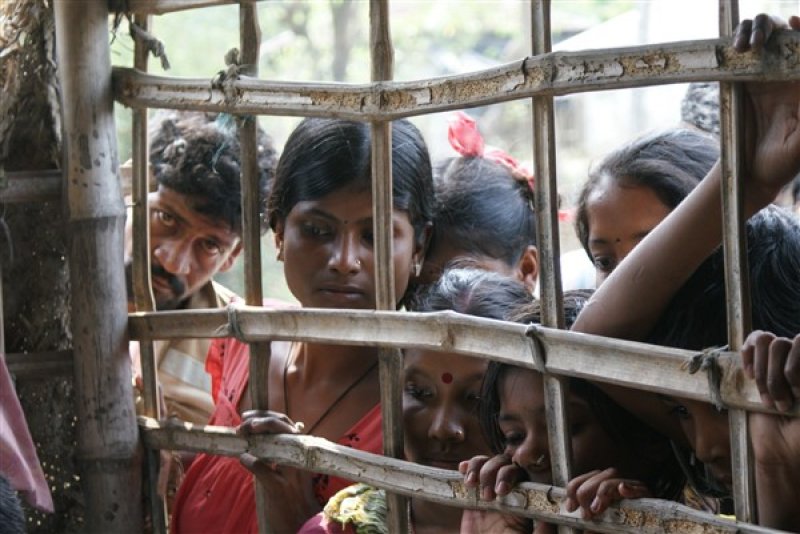Leea Collard – CFGJ Law Clerk – “The Importance of Protecting the Data of Trafficking Survivors”
When you think of protecting human trafficking survivors, what comes to mind? Most people think of financial donations and job skills training. But what about protecting the sensitive personal data of human trafficking survivors?

Hello! My name is Leea Collard, and I am a second-year law student at Regent University School of Law. This year, I have the pleasure of serving as a law clerk for the Center for Global Justice. During the Fall 2021 semester, my team and I were assigned to work with Justice Ventures International (“JVI”).
JVI is a nonprofit organization dedicated to combating human trafficking in India through partnerships with local organizations and global stakeholders. In order to bring freedom, justice, and restoration to men and women suffering from human trafficking and other forms of extreme violence.
The scope of our project was to provide a research memorandum summarizing JVI’s obligations under the Information Technology Act (“ITA”) and the Personal Data Protection Bill (“PDP”).
Our memorandum also detailed recommendations for practices and procedures that JVI should implement. In order to avoid inadvertently disclosing sensitive information, particularly sensitive information belonging to human trafficking survivors.
– – –
The Danger Posed
In 2018, India was identified as the world’s most dangerous country for women due to the high risk of sexual violence and being forced into slave labor.[1] In 2020 alone, about 1,714 cases of human trafficking were registered by the Indian Government’s Anti-Human Trafficking Units.[2]
When trafficking survivors’ cases are reported to the Indian Government or an NGO, it is of utmost importance that their sensitive data is not leaked. According to the United Nations Declaration of Human Rights and the United Nations International Covenant on Civil and Political Rights:
The right to privacy is an inviolable human right and applies to data protection or “a protective barrier against the unauthorized use, or manner of use, of clients’ data.”[3]
The Right to Privacy
While India has ratified both the United Nations Declaration of Human Rights and the United Nations International Covenant on Civil and Political Rights, it did not recognize privacy as a fundamental right until the Supreme Court of India’s 2017 decision in Puttaswamy v. Union of India.[4]
In addition to this decision, data protection, including the protection of trafficking survivors’ sensitive data, is currently regulated by the Information Technology Act. However, the ITA does not apply to the interoffice transfer of personal data and the protection thereof. As such, in 2019, the Indian Parliament presented the Personal Data Protection Bill. The PDP Bill is devoted to regulating the transfer of sensitive personal data to offices outside of India. It requires notice and consent for sensitive data to be processed, and expands the ITA’s provision concerning territorial jurisdiction. At the time of this writing, the PDP Bill has yet to be voted into law and thus does not have the full force of law.
How do we Ensure Data Protection?
To avoid inadvertent disclosure of sensitive data of trafficked persons, organizations like JVI, who manage, process, and transfer such data should:
- Understand and classify their data.
- Detect and prevent data leaks.
- Secure and protect their data.
Additionally, such organizations must obtain personal data with the provider’s informed consent, use and collect the information for lawful purposes, and allow data providers to review the information and correct any inaccuracies. Furthermore, such organizations must demonstrate a good-faith effort to comply with the data protection laws in their country and region of operation. Please note that these recommendations do not establish a client-lawyer relationship between the Center of Global Justice and the reader. That is to say, these recommendations simply signify the importance of protecting the data of trafficking survivors.
– – –

To contribute to JVI’s fight for justice, please visit https://www.justiceventures.org/donate/.
This post was written by a Center for Global Justice Law Clerk. The views expressed in this post do not necessarily reflect those of Regent University, Regent Law School. Or the Center for Global Justice.
[1] Belinda Goldsmith & Meka Beresford, Poll Ranks India the World’s Most Dangerous Country for Women, THE GUARDIAN, (June 28, 2018, 5:00 PM), https://www.theguardian.com/global-development/2018/jun/28/poll-ranks-india-most-dangerous-country-for-women.
[2] PTI, About 1,714 Human Trafficking Cases Registered in 2020, FINANCIAL EXPRESS, (Sept. 18, 2021, 5:21 PM), https://www.financialexpress.com/india-news/about-1714-human-trafficking-cases-registered-in-2020/2332907/.
[3] Org. of Am. States, Data Protection, OAS.ORG, http://www.oas.org/dil/data_protection_privacy_habeas_data.htm (last visited Nov. 16, 2021).
[4] Puttaswamy v. Union of India, GLOB. FREEDOM OF EXPRESSION: COLUMBIA UNIV.,https://globalfreedomofexpression.columbia.edu/cases/puttaswamy-v-india/ (last visited Nov. 30, 2021).

